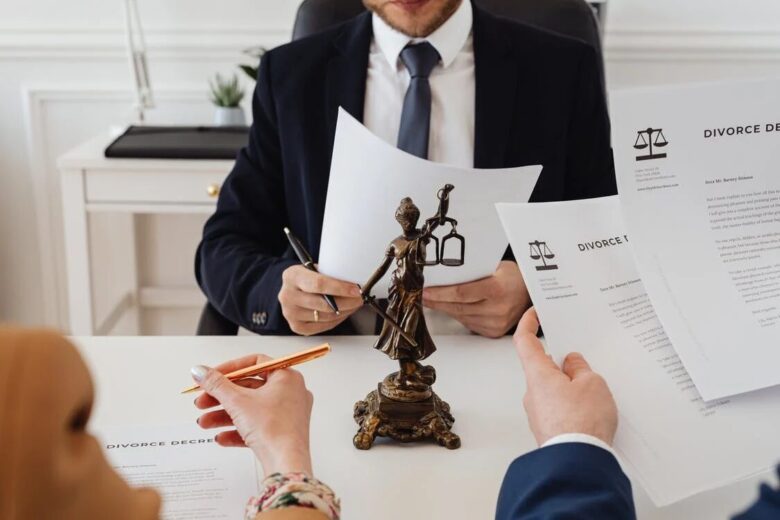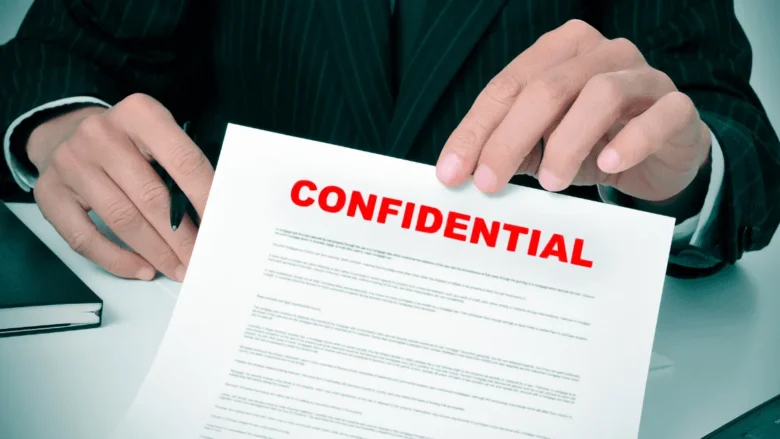Mediation is a widely used method for resolving disputes outside of the courtroom. It offers parties involved in a conflict the opportunity to collaborate and find mutually agreeable solutions with the help of a neutral third party – the mediator.
While mediation often conjures up images of informal negotiations, the presence of lawyers can be crucial in achieving successful outcomes. In this comprehensive guide, we will explore the role of a lawyer during mediation, their responsibilities, and the value they bring to the process.
Mediation
Before looking into the role of lawyers in mediation, it’s important to have a clear understanding of what mediation entails. Mediation is a voluntary, confidential process where disputing parties work together, with the assistance of a trained mediator, to identify and resolve their issues. This alternative dispute resolution (ADR) method is favored for its flexibility, cost-effectiveness, and ability to preserve relationships. The Vahey Law & Mediation, LLC can help.
Preparation and Consultation

Assessing the Case
The lawyer’s role in mediation begins well before the actual mediation session. They start by assessing the case, understanding the client’s goals, strengths, and weaknesses, and evaluating whether mediation is an appropriate course of action. Lawyers consider various factors, such as the nature of the dispute, the personalities of the parties involved, and the potential for a mutually beneficial resolution.
Informing the Client
Once the lawyer determines that mediation is a viable option, they educate their client about the process. This includes explaining the benefits and drawbacks of mediation, setting realistic expectations, and discussing the costs involved. Lawyers also clarify their role and how they will support the client throughout the mediation.
Preparing the Client
Goal Setting
Lawyers help their clients define their goals for the mediation process. These goals can range from financial settlements to preserving a business partnership or maintaining a co-parenting relationship. Clear and achievable goals are essential for guiding the mediation process.
Document Review
Before the mediation session, lawyers review any relevant documents, contracts, or agreements related to the dispute. This ensures that they have a thorough understanding of the issues at hand and can provide informed guidance to their clients during negotiations.
Coaching and Strategizing
Lawyers coach their clients on effective communication strategies, emphasizing active listening and assertive yet respectful expression of their needs and concerns. They also help clients anticipate potential solutions and compromises, preparing them for constructive engagement during mediation.
Attending the Mediation Session

Legal Representation
One of the primary roles of a lawyer during mediation is to provide legal representation to their client. This involves advocating for the client’s interests, protecting their legal rights, and ensuring that any proposed agreements are legally sound.
Support and Guidance
During the mediation session, lawyers offer emotional support to their clients. Mediation can be a stressful process, and having a lawyer by their side can help clients stay focused and composed. Lawyers also guide their clients through the negotiation process, helping them make informed decisions.
Managing Expectations
Lawyers play a crucial role in managing their client’s expectations during mediation. They explain the potential outcomes, the likelihood of reaching a settlement, and the consequences of various decisions. This helps clients make realistic and informed choices.
Facilitating Communication
Communication Bridge
Lawyers act as a bridge between their clients and the mediator. They help facilitate effective communication by conveying their client’s concerns, proposals, and questions to the other party. This ensures that nothing is lost in translation and that both parties have a clear understanding of each other’s perspectives.
Reducing Tension
Mediation sessions can become emotionally charged, especially in high-conflict cases. Lawyers can help de-escalate tensions by promoting respectful and constructive dialogue. They discourage confrontational behavior and encourage a collaborative atmosphere.
Negotiation and Problem-Solving

Legal Expertise
Lawyers bring their legal expertise to the negotiation table. They can assess the legal implications of proposed solutions and advise their clients on the potential consequences of different settlement options. This legal insight is invaluable in crafting agreements that are both fair and legally enforceable.
Creative Problem-Solving
Lawyers often contribute to creative problem-solving by suggesting alternative solutions or compromises that may not have been initially considered. They help their clients explore all possible avenues for resolution and make informed decisions that align with their best interests.
Drafting Agreements
Documenting the Agreement
Once the parties reach a consensus during mediation, lawyers play a critical role in drafting the formal agreement. This agreement outlines the terms and conditions of the settlement and is often legally binding. Lawyers ensure that the agreement accurately reflects the intentions of both parties and complies with relevant laws and regulations.
Legal Review
Lawyers carefully review the drafted agreement to ensure its legality and fairness. They make any necessary revisions or clarifications to protect their client’s interests. This legal review helps prevent future disputes or challenges to the agreement.
Post-Mediation Support
Enforcement and Compliance
After mediation, lawyers continue to support their clients by overseeing the enforcement and compliance with the mediated agreement. They ensure that both parties adhere to the terms and conditions outlined in the agreement and take legal action if necessary to enforce it.
Conflict Resolution
In some cases, disputes may arise even after a successful mediation process. Lawyers are equipped to handle post-mediation conflicts and can guide their clients through additional dispute resolution processes, such as arbitration or litigation if required.
Confidentiality and Ethical Considerations

Upholding Confidentiality
Lawyers must uphold the strict confidentiality of the mediation process. They are bound by ethical rules that prevent them from disclosing information shared during mediation without their client’s consent. This confidentiality fosters open and honest communication during mediation.
Ethical Conduct
Lawyers must adhere to ethical standards throughout the mediation process. This includes maintaining a neutral and impartial stance, avoiding conflicts of interest, and acting in their client’s best interests within the bounds of the law.
Final Words
The role of a lawyer during mediation is multifaceted and essential for achieving successful outcomes. From initial case assessment to post-mediation support, lawyers provide invaluable guidance, legal expertise, and emotional support to their clients. They facilitate communication, promote problem-solving, and ensure that any resulting agreements are legally sound.
Mediation, with the involvement of lawyers, offers parties a constructive and efficient way to resolve disputes while preserving relationships and minimizing the costs associated with litigation. As such, lawyers are integral to the mediation process, playing a pivotal role in helping parties navigate their way to mutually beneficial resolutions.

